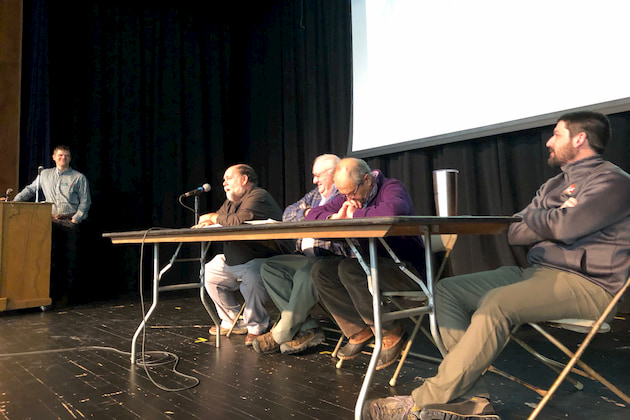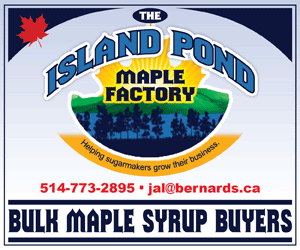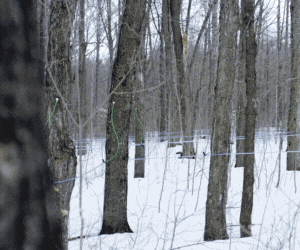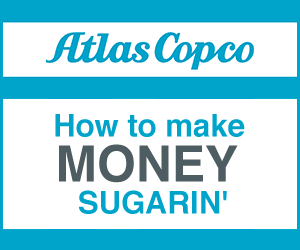Headlines
Industry leaders ponder the future of maple
Expansion declines but consumer demand remains strong
By PETER GREGG | MAY 13, 2019
HYDE PARK, Vt.—Tap expansion is slowing but the syrup market and overall maple economy remains strong.
This was the opinion of four industry leaders during a “State of the Industry” roundtable discussion at the Hyde Park Maple School in Northern Vt. this winter.
“I’m positive about the overall state of maple,” said Bradley Gillilan, president of Leader Evaporator Co., the nation’s biggest equipment manufacturer.
But Gillilan and Bruce Bascom, owner of Bascom Maple Farms in Alstead, N.H. both concurred that the rapid adding of taps over the past ten years is waning.
“Expansion is definitely slowing down,” Bascom said.
That opinion expands into Quebec.
David Hall, a 22,000-tap producer in Lac Brome, Que. and a board member for the Federation of Quebec Maple Producers said that the federation had only let out about 66 percent of the 5 million taps it announced it would add into its quota system two years ago.
The speakers said they hoped the expansion slowdown doesn’t slow down too much.
There are consumer market demands to be met and less supply could mean that shelf space for syrup in the groceries could be lost to competing products.
“We need a decent crop of syrup,” Gillilan said. It appears that both the U.S. and the Quebec crop were on par for last year.
Bascom said the markets are still growing at an exceptional 7 percent per year.
He said the official National Agricultural Statistics Service count of the industry production has been dramatically off, undercounting by as much as 1 million gallons per year. And starting this year, the NASS agency will be eliminating five maple states from its survey.
“There’s a big undercount in government statistics,” Bascom said. Wisconsin, Ohio and Western New York are the areas that are being particularly under-reported to the statistics agency, he said.
Reza Ramazanı, Ph.D Economics Professor at St. Michaels College in Burlington has been studying the maple marketplace, he said.
“There is a huge demand for your product,” Ramazani said. “As long as consumers stay health conscious, demand will stay strong.”
Prices back to the producer were not expected to get better any time soon, according to the panelists.
‘Sales haven’t been as good and we are rebalancing our inventories,” Hall said. ‘There’s more syrup in the pipeline which affects what people get paid. We are trying to lower the strategic reserve.”
Prices to producers in the U.S. are affected most by the exchange rate between the U.S. and Canada.
‘The exchange rate is what keeps prices down,” Bascom said.
The biggest point of discussion was the effect of lead restrictions on the industry and the stringent testing and “zero-tolerance” of any detectable lead that will occur in 2020 due to an industry agreement with the state of California to conform with their Prop 65 laws, which ban even the minutest levels of lead in maple products.
“We’re pulling our hair out about lead,” Hall said.
Everything that touches sap and syrup must be lead free, from the smallest plumbing fittings to obscure sugarhouse tools like pressure washers.
The big question is what will happen to the nearly 100 million pounds of syrup in the Quebec strategic reserve that has been produced in years before the 2020 lead ban, the panelists wondered out loud.
“What are you going to do with a warehouse full of high lead syrup?” Bascom said. “Buyers are only going to want low lead syrup.”
Hall said Quebec and the Federation will be doing much “drum testing” for lead and will be “vigilant to keep it out.”
“We want to conform as quickly as possible,” Hall said.































